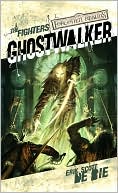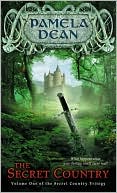Hines: Wrong on Piracy, Wrong on Batman
The title is a reference to this Shortpacked strip, and probably made no sense to anyone else. But it amused me, so I kept it.
I received a great deal of feedback on last week’s post about book piracy. My thanks to everyone who jumped into the discussion. While I still believe much of what I wrote to be true, I also find that some of my assumptions were either overly broad or flat-out wrong.
Legality: I was going to start out by saying at least we can all agree that downloading copyrighted books without permission is illegal, right? But maybe not. While it’s illegal under U.S. law, Corinne Duyvis was kind enough to translate copyright law in the Netherlands, which gives broader allowance to make copies for home use. The uploading/file-sharing part appears to be illegal, and you can only download small portions of books … except for “works of which you can reasonably assume that no new copies will be sold to third parties in whichever form possible.”
In other words, downloading out-of-print (which is not the same as out of copyright) books in the Netherlands is currently legal if those books don’t look like they’ll be coming back into print. Thus blowing away my “simple and obvious” assumption. Oops.
Americentrism: Another friend messaged me privately to ask who my audience was for my piracy post, which was a tactful way of pointing out that I seemed to be assuming everyone downloading illegally had convenient, cheap, legal alternatives.
I started up a very informal survey in the comments. Take a book that costs $7.99 in the U.S., or $8.99 in Canada. In Australia, that same book might sell for about $20. Another commenter said SF/F paperbacks in Ireland generally run about 25 Euro, or roughly $35 U.S. And these aren’t generally considered to be poor or third world nations.
Does the fact that something is expensive mean it’s okay to steal it? No … but it makes me less willing to level an across-the-board charge of dickishness. If you’re sitting at home with your high-end computer and smartphone and are downloading because you’re too lazy to go to a nearby library or too cheap to shell out $8 to buy the damn book, then the charge stands. If you’re living in Malaysia and a book costs as much as eight meals? Maybe not…
Marina on Dreamwidth takes this a step further, asking “I’d like to see how many of these authors who complain about their books being ‘pirated’ would still have the libraries they do if every paperback cost them 25$+ and took weeks to acquire.” She goes on to say, “the places where ebook … ~piracy~ is most widespread are not developed, Anglophone countries, and there are reasons for that.”
I wish I had a source for that last claim. I follow the logic of why readers in less developed countries might be more likely to download books and other media, but I’m not sure I accept the claim that piracy is most widespread in those countries. It could be — I don’t know. I just want more info and haven’t yet been able to find it.
The publishing industry has problems to address, no argument there. A number of people expressed frustration at the way regional limitations prevent them from being able to legally buy e-books. While I somewhat understand the basis for regional sales/publishing restrictions, I also recognize how frustrating it is that someone from the U.S. can click and buy an e-book in 30 seconds, while someone in another country can go to the exact same website, click the exact same links, and be denied.
Deconstructing the Western Foundation of Intellectual Copyright Law: Colorblue has another good post which points out various abuses of copyright law, and goes on to challenge the entire western foundation and assumptions behind intellectual property. As an author currently working within that intellectual property system, this was a challenging read, one I’m still processing.
Links: Tobias Buckell has a long, thoughtful piracy post today. He does a nice job of addressing various arguments for and against piracy, and I’m hard-pressed to argue with most of his conclusions. In addition, Charles Tan and Fantasyecho both did link roundups of the discussion, which are worth checking out.
I’m still sorting this out. I do think that for people like me, piracy is pretty much a dick move. But of course, I’m privileged as hell.
Does that mean it’s all right for someone to pirate my books if they’re poor, or if they’re in a country where it’s harder to get books or where books are too expensive? I don’t know. But I’m not convinced they’re doing me much harm, if any, and I’m no longer comfortable with across-the-board condemnation.
Your thoughts?









 I got into D&D around age 10, and I almost immediately started writing all sorts of adventures, character backgrounds, and even stories. My first long fiction — the background of my character Whisper, an elf rogue in the Forgotten Realms setting (coincidentally) — I wrote at 13. It was supposed to be 10 pages and ended up being 45. I knew at that point that writing was what I wanted to do.[1. Jim’s note: My first few stories came about in a very similar way, actually.]
I got into D&D around age 10, and I almost immediately started writing all sorts of adventures, character backgrounds, and even stories. My first long fiction — the background of my character Whisper, an elf rogue in the Forgotten Realms setting (coincidentally) — I wrote at 13. It was supposed to be 10 pages and ended up being 45. I knew at that point that writing was what I wanted to do.[1. Jim’s note: My first few stories came about in a very similar way, actually.]
 briefly, and cut the book in two unequal pieces. I polished up the “ending” of the first so that it was less raggedy. Pat then wrote me a cover letter, and I sent the manuscript to Terri Windling, then at Ace Books, who had bought Pat’s first novel. In addition to Pat’s willingness to write me a cover letter, Terri was at that time editing both an adult and a children’s line of books, sparing me the decision as to which sort I had written.
briefly, and cut the book in two unequal pieces. I polished up the “ending” of the first so that it was less raggedy. Pat then wrote me a cover letter, and I sent the manuscript to Terri Windling, then at Ace Books, who had bought Pat’s first novel. In addition to Pat’s willingness to write me a cover letter, Terri was at that time editing both an adult and a children’s line of books, sparing me the decision as to which sort I had written.